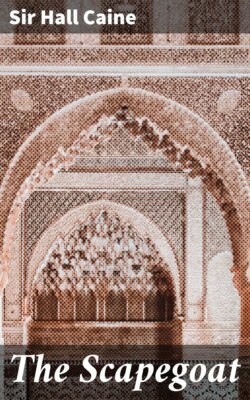Читать книгу The Scapegoat - Sir Hall Caine - Страница 4
PREFACE
ОглавлениеWithin sight of an English port, and within hail of English ships as they pass on to our empire in the East, there is a land where the ways of life are the same to-day as they were a thousand years ago; a land wherein government is oppression, wherein law is tyranny, wherein justice is bought and sold, wherein it is a terror to be rich and a danger to be poor, wherein man may still be the slave of man, and women is no more than a creature of lust—a reproach to Europe, a disgrace to the century, an outrage on humanity, a blight on religion! That land is Morocco!
This is a story of Morocco in the last years of the Sultan Abd er-Rahman. The ashes of that tyrant are cold, and his grandson sits in his place; but men who earned his displeasure linger yet in his noisome dungeons, and women who won his embraces are starving at this hour in the prison-palaces in which he immured them. His reign is a story of yesterday; he is gone, he is forgotten; no man so meek and none so mean but he might spit upon his tomb. Yet the evil work which he did in his evil time is done to-day, if not by his grandson, then in his grandson's name—the degradation of man's honour, the cruel wrong of woman's, the shame of base usury, and the iniquity of justice that may be bought! Of such corruption this story will tell, for it is a tale of tyranny that is every day repeated, a voice of suffering going up hourly to the powers of the world, calling on them to forget the secret hopes and petty jealousies whereof Morocco is a cause, to think no more of any scramble for territory when the fated day of that doomed land has come, and only to look to it and see that he who fills the throne of Abd er-Rahman shall be the last to sit there.
Yet it is the grandeur of human nature that when it is trodden down it waits for no decree of nations, but finds its own solace amid the baffled struggle against inimical power in the hopes of an exalted faith. That cry of the soul to be lifted out of the bondage of the narrow circle of life, which carries up to God the protest and yearning of suffering man, never finds a more sublime expression than where humanity is oppressed and religion is corrupt. On the one hand, the hard experience of daily existence; on the other hand, the soul crying out that the things of this world are not the true realities. Savage vices make savage virtues. God and man are brought face to face.
In the heart of Morocco there is one man who lives a life that is like a hymn, appealing to God against tyranny and corruption and shame. This great soul is the leader of a vast following which has come to him from every scoured and beaten corner of the land. His voice sounds throughout Barbary, and wheresoever men are broken they go to him, and wheresoever women are fallen and wrecked they seek the mercy and the shelter of his face. He is poor, and has nothing to give them save one thing only, but that is the best thing of all—it is hope. Not hope in life, but hope in death, the sublime hope whose radiance is always around him. Man that veils his face before the mysteries of the hereafter, and science that reckons the laws of nature and ignores the power of God, have no place with the Mahdi. The unseen is his certainty; the miracle is all in all to him; he throngs the air with marvels; God speaks to him in dreams when he sleeps, and warns and directs him by signs when he is awake.
With this man, so singular a mixture of the haughty chief and the joyous child, there is another, a woman, his wife. She is beautiful with a beauty rarely seen in other women, and her senses are subtle beyond the wonders of enchantment. Together these two, with their ragged fellowship of the poor behind them, having no homes and no possessions, pass from place to place, unharmed and unhindered, through that land of intolerance and iniquity, being protected and reverenced by virtue of the superstition which accepts them for Saints. Who are they? What have they been?
